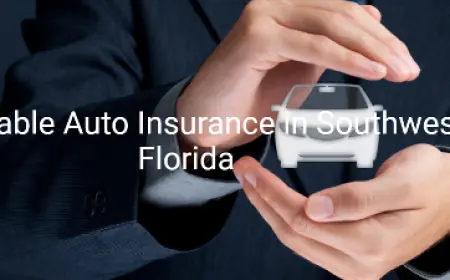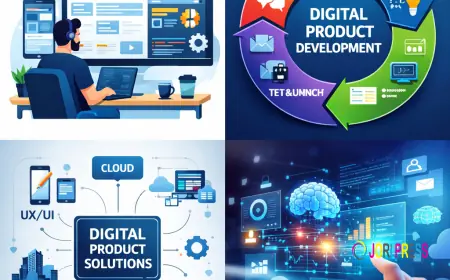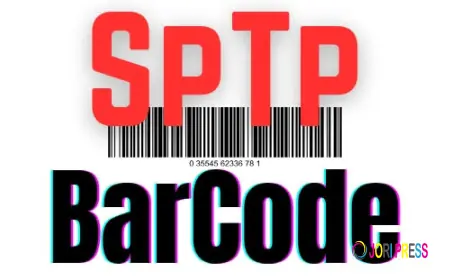Ford’s Inaugural Entrepreneurship Academy Accelerates the Future of Transportation and Mobility in Dubai
Dubai has taken yet another bold step toward becoming a global hub for innovation and entrepreneurship. The launch of the first-ever Henry Ford Entrepreneurship Academy (HFEA) Future Transportation and Mobility workshop, held from October 21 to 23 in collaboration with Dubai’s Youth Hub, underscored the emirate’s commitment to cultivating future-ready startups. This pioneering initiative, spearheaded by FORD, brought together 14 promising entrepreneurs to explore new solutions in mobility while gaining direct mentorship from global leaders, industry pioneers, and successful founders.
A Vision for Future Mobility
The inaugural HFEA workshop was not an ordinary entrepreneurship program. It was designed specifically to address the fast-changing landscape of transportation and mobility—a sector that is undergoing unprecedented transformation. From electric and autonomous vehicles to AI-driven traffic management systems, the way people and goods move is being redefined. Dubai, with its futuristic vision, served as the ideal backdrop for such an initiative.
The program recognized that startups are at the heart of this transformation. By equipping entrepreneurs with tools, mentorship, and networks, Ford and its partners aimed to accelerate innovation that could ultimately reshape how cities function and how people interact with mobility solutions.
Collaboration with Global and Local Leaders
What made the HFEA workshop distinctive was its collaborative nature. It was not just Ford at the helm; the program also engaged global technology giant Huawei and local AI-based company Derq, each contributing their unique expertise to enrich the experience.
Huawei’s participation highlighted the increasing role of connectivity and 5G technologies in enabling future mobility, from smart vehicles to intelligent infrastructure. Meanwhile, Derq, a Dubai-based artificial intelligence startup specializing in road safety and predictive analytics, demonstrated how local innovators are already making significant contributions to the mobility sector.
By blending the insights of international corporations with the dynamism of local startups, the workshop created a holistic ecosystem where participants could explore practical, future-facing solutions.
A Distinctive Learning Experience
The 14 selected entrepreneurs were immersed in a three-day intensive program that went far beyond traditional workshops. Rather than passive lectures, the program focused on interactive sessions, group challenges, and real-world problem-solving exercises.
Participants gained invaluable access to some of the most influential mentors in the industry. Among them was Mark Ovenden, President of Ford Middle East and Africa, who shared global insights into the evolving automotive industry and encouraged entrepreneurs to think big while remaining rooted in practical execution.
Other mentors included regional business leaders and co-founders of successful enterprises who shared personal journeys, challenges, and strategies. The mentorship sessions were designed to give participants an unfiltered look into the realities of building startups while also offering actionable strategies to overcome obstacles.
Youth Empowerment at the Core
The collaboration with Dubai’s Youth Hub was no coincidence. As part of the UAE’s vision to empower its youth, the Youth Hub provides spaces and opportunities for young people to innovate and create. Hosting the HFEA workshop there reinforced the message that the next generation of entrepreneurs must be at the forefront of solving society’s most pressing challenges.
For participants, this was more than just a business workshop. It was an opportunity to become part of Dubai’s broader innovation ecosystem, where government, private sector, and youth initiatives intersect to accelerate entrepreneurial growth.
Focus Areas: Innovation, Technology, and Sustainability
The themes explored during the workshop highlighted the urgent need for innovative mobility solutions. Entrepreneurs were encouraged to explore ideas around sustainable transportation, smart city integration, autonomous driving, and AI-powered traffic systems.
With global cities struggling with congestion, environmental challenges, and rapid urbanization, the role of startups in shaping sustainable and efficient mobility has never been more important. The HFEA program emphasized that innovation is not only about creating profitable ventures but also about addressing real-world problems in ways that benefit society at large.
Networking and Long-Term Impact
One of the most valuable outcomes of the workshop was the network that participants built. By connecting with Ford executives, Huawei leaders, Derq innovators, and fellow entrepreneurs, participants left with far more than just knowledge—they left with relationships that could fuel their ventures in the months and years ahead.
Such connections are often the differentiator between an idea that remains on paper and one that scales into a market-changing business. The HFEA program ensured that its participants were not isolated dreamers but rather embedded within a supportive ecosystem that values their contributions.
Positioning Dubai as a Startup Hub
Dubai’s hosting of the inaugural HFEA workshop signals more than just one successful event—it demonstrates the emirate’s determination to be a global hub for entrepreneurship, particularly in industries shaping the future. By attracting global companies like Ford and Huawei while simultaneously empowering local players like Derq, Dubai is positioning itself as the meeting point of global innovation and local creativity.
Such initiatives also highlight the UAE’s broader strategy to diversify its economy and prepare for a post-oil future. Technology, mobility, and entrepreneurship are all central to that vision.
Conclusion
Ford’s inaugural Entrepreneurship Academy in Dubai has set a powerful precedent. By focusing on future transportation and mobility, the program not only provided 14 entrepreneurs with unparalleled mentorship and opportunities but also showcased the power of collaboration between global corporations, local startups, and government-led initiatives.
The involvement of Ford, Huawei, and Derq reinforced the importance of cross-sector collaboration in solving complex challenges. Meanwhile, the Youth Hub partnership emphasized the UAE’s commitment to empowering young innovators to lead the charge.
As Dubai continues to push boundaries in technology and innovation, programs like HFEA will remain vital. They remind us that the future of mobility will not be defined by corporations alone but by bold entrepreneurs who dare to imagine new possibilities—and who, with the right guidance, can turn those visions into reality.
What's Your Reaction?
 Like
0
Like
0
 Dislike
0
Dislike
0
 Love
0
Love
0
 Funny
0
Funny
0
 Angry
0
Angry
0
 Sad
0
Sad
0
 Wow
0
Wow
0


















































